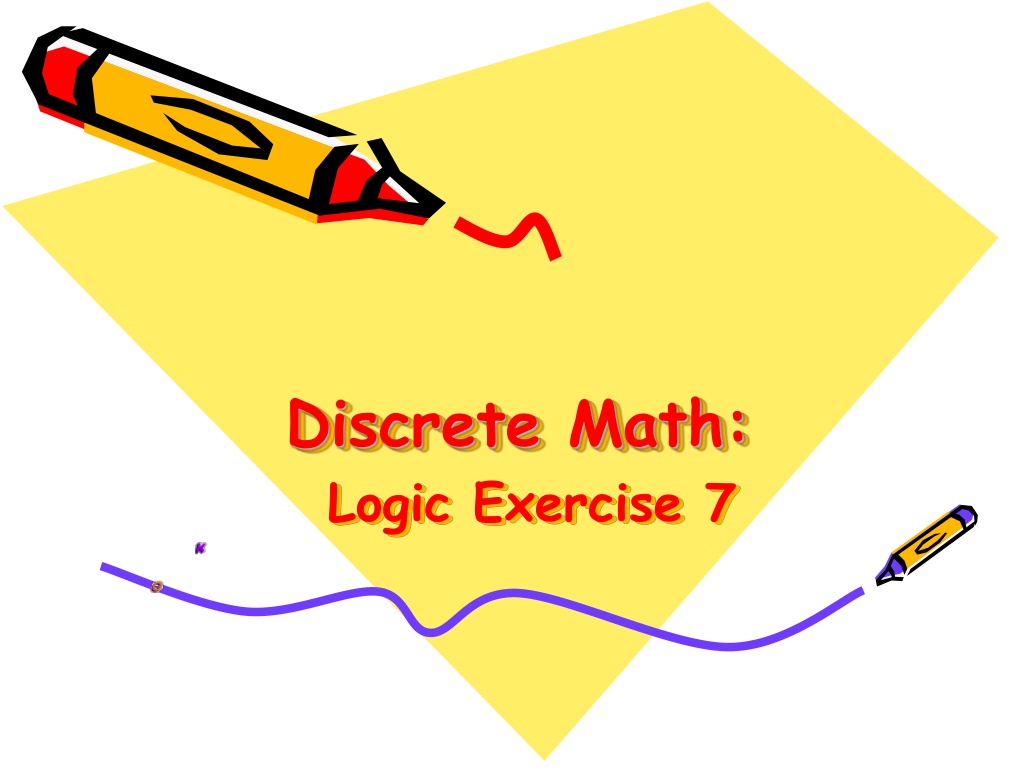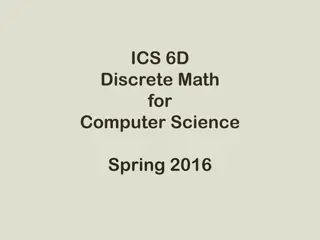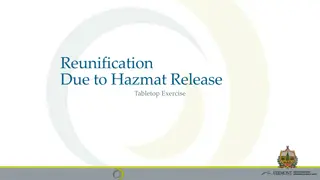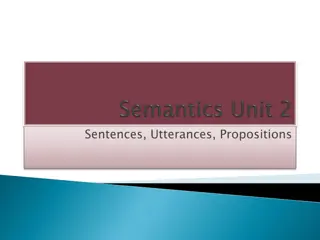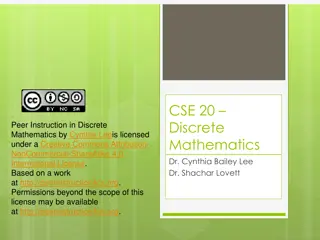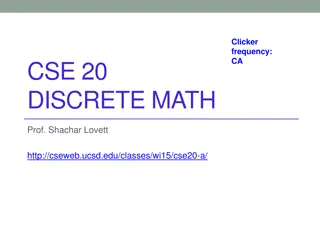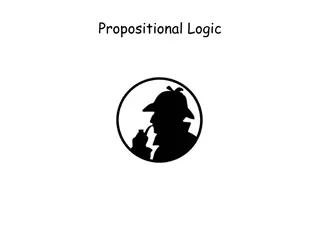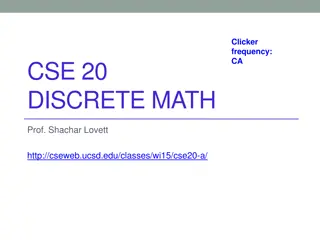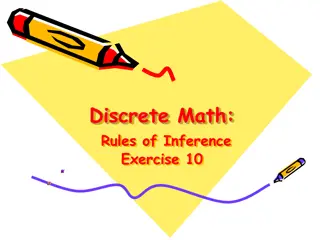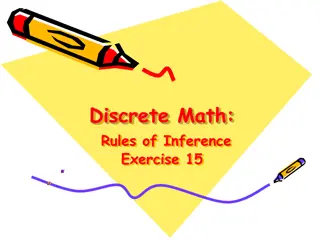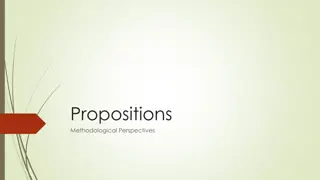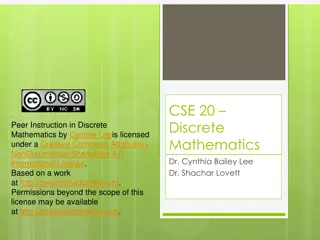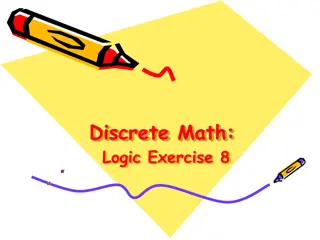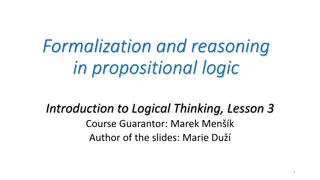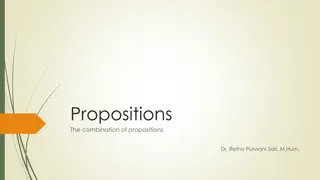Logical Propositions Exercise in Discrete Math
Explore logical propositions using p and q, along with various connectives including negations, in a series of exercises. Solutions provided for each scenario.
Download Presentation

Please find below an Image/Link to download the presentation.
The content on the website is provided AS IS for your information and personal use only. It may not be sold, licensed, or shared on other websites without obtaining consent from the author.If you encounter any issues during the download, it is possible that the publisher has removed the file from their server.
You are allowed to download the files provided on this website for personal or commercial use, subject to the condition that they are used lawfully. All files are the property of their respective owners.
The content on the website is provided AS IS for your information and personal use only. It may not be sold, licensed, or shared on other websites without obtaining consent from the author.
E N D
Presentation Transcript
Discrete Math: Logic Exercise 7
Exercise Let p and q be the propositions p : You drive over 65 miles per hour. q : You get a speeding ticket. Write these propositions using p and q and logical connectives (including negations). a) b) You drive over 65 miles per hour, but you do not get a speeding ticket. c) You will get a speeding ticket if you drive over 65 miles per hour. d) If you do not drive over 65 miles per hour, then you will not get a speeding e) Driving over 65 miles per hour is sufficient for getting a speeding ticket. f) You get a speeding ticket, but you do not drive over 65 miles per hour. g) Whenever you get a speeding ticket, you are driving over 65 miles per hour. You do not drive over 65 miles per hour. ticket.
Solution a) This is just the negation of p, so we write p. b) This is a conjunction ("but" means "and"): p q. c) The position of the word "if" tells us which is the antecedent and which is the consequence: p -> q. d) p q e) The sufficient condition is the antecedent: p q. f) q p g) ''Whenever" means "if": q p.
References Discrete Mathematics and Its Applications, McGraw-Hill; 7th edition (June 26, 2006). Kenneth Rosen Discrete Mathematics An Open Introduction, 2nd edition. Oscar Levin A Short Course in Discrete Mathematics, 01 Dec 2004, Edward Bender & S. Gill Williamson
